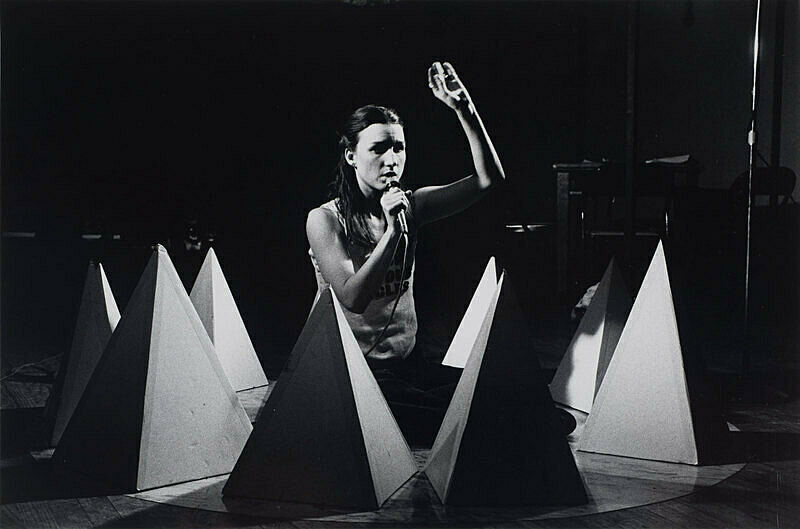On View: Jill Kroesen, “Lou’s Dream” from The Original Lou and Walter Story, 1978
Dec 16, 2013
Rituals of Rented Island: Object Theater, Loft Performance, and the New Psychodrama—Manhattan, 1970–1980, on view through February 2, 2014, explores a relatively little-known genre of performance art that occurred in lofts, DIY art spaces, and small theaters in New York during the 1970s. Hermetic and unapologetically mystifying, many of these works went undocumented and, in some cases, the artists who produced them drifted away from the art world.
Jill Kroesen is one such example. Kroesen was trained in avant-garde music and worked with composer Robert Ashley, performing a prominent role in Ashley’s “television opera” Perfect Lives. (1978-83). Her own work from the late 1970s was, like Ashley’s, a hybrid of music, theater, and visual art. Her tone though was unique, and to me, beguiling.
One of her videos included in the exhibition is her “Lou’s Dream” monologue from The Original Lou and Walter Story (1978). Kroesen sits in a darkened space populated only by austere grey pyramids. It’s a surreal image, but with the wry expression on Kroesen’s face, there’s a subtle humor that seems like it might bubble up and burst forth. As soon as she begins speaking, the tension between surrealism and humor becomes more explicit. Kroesen speaks with a creaky voice and a flat American affect that are exaggerated through her syntax, which reminds me of the way a precocious first-grader might earnestly ramble through the telling of a tall tale to an adult. This is all highly intentional, though. Kroesen seems interested in the poetic effects she can draw out of this seemingly artless mode of speech.
Despite the fact that she lays out an incomprehensible dream narrative (alluding to potato farmers in the Sodom Union who, when not being antagonized by a sheriff, are stricken by “abnormal love” and go to heaven), the musical quality of her language, the humor of the presentation, and her weaving in and out of key imagery kept my full, rapt attention.
Freud once said that the telling of a dream to another “repel(s) us or at least leave(s) us cold.” To me, what is so remarkable about this video is that Kroesen has figured out a way to tell us a dream, but keeps us close and wanting more.
By Gene McHugh, Interpretation Fellow
